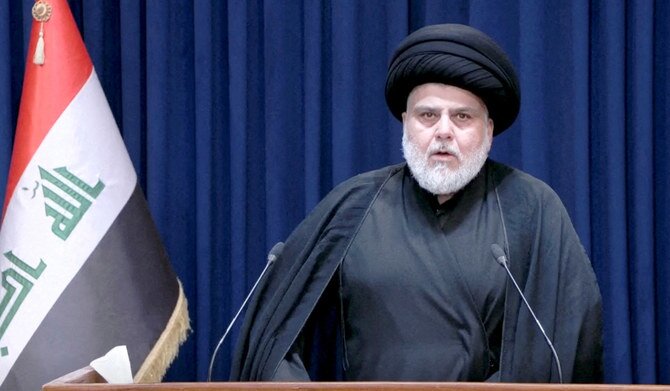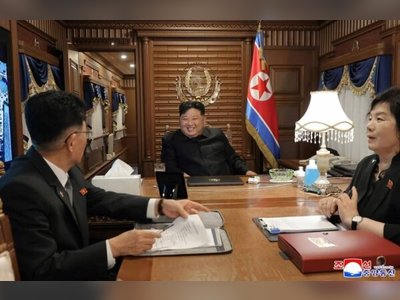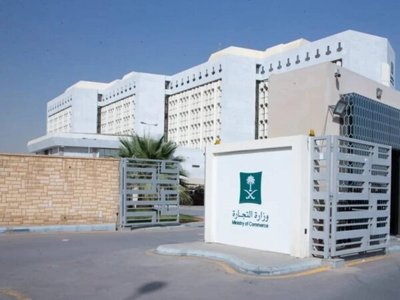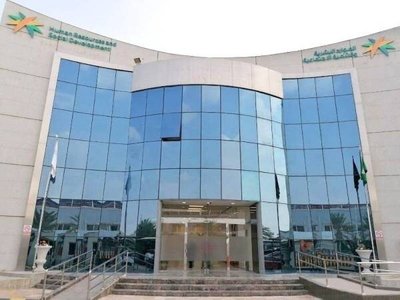
Moqtada al-Sadr's Political Comeback: A Threat to Iraq's Stability and Iran's Influence?
Moqtada al-Sadr, a prominent Iraqi Shi'ite Muslim cleric, is preparing for a political comeback after failing to form a government two years ago.
His return, anticipated for the 2025 parliamentary election, could challenge the influence of rivals, including Iran-backed Shi'ite parties and militias, and potentially disrupt Iraq's recent stability.
However, Sadr's large following among the mostly pious and poor Shi'ite population may welcome his re-emergence as a champion for the downtrodden.
Reuters interviewed over 20 sources, including politicians, clerics, and analysts, to gather information for this report.
The Sadrist movement, led by anti-establishment Shi'ite cleric Moqtada al-Sadr, is reportedly planning to increase its representation in Iraq's parliament to form a majority government.
Sadr won the 2021 election but resigned after failing to form a government with Kurdish and Sunni Muslim parties.
He has been a significant figure in Iraqi politics since the 2003 US-led invasion and has criticized the influence of both Iran and the US.
Iran sees Sadr's involvement in politics as crucial for maintaining the Shi'ite-dominated political system but opposes his goal of becoming the most powerful force.
The United States views Moqtada al-Sadr as a threat to Iraq's stability due to his past declarations of holy war against American forces, but also sees him as a counter to Iranian influence.
Many Iraqis feel they have lost out regardless of who is in power as elites continue to siphon off the country's oil wealth.
In March 2023, Sadr met with Grand Ayatollah Ali al-Sistani, a prominent Shi'ite cleric, which Sadrists interpret as a tacit endorsement.
Sistani typically avoids politics and does not typically meet politicians.
A cleric close to Sistani reported that Sadr discussed a potential political comeback during a meeting with him, leaving the encounter with a positive outcome.
Sadr subsequently instructed his resigned lawmakers to regroup and re-engage with his political base.
He renamed his organization, the Shi'ite National Movement, as a way to criticize rival Shi'ite factions and further mobilize his base along sectarian lines.
Some analysts are concerned about the disruption of Sadr's return to frontline politics, while others believe he may emerge more humbled after the routing of his forces and the relative success of the current Bagdad government in balancing relations between Iran and the U.S. Sistani's office did not comment on the matter.
Hamzeh Hadad, an Iraqi analyst, believes that despite the instability risks of having multiple armed groups balancing power, the Sadrists should return less hostile to maintain power sharing.
The political parties understand the importance of sharing power rather than losing it all.
The Sadrists may seek alliances with ruling Shi'ite factions like Prime Minister Mohammed Shia al-Sudani, while isolating rivals such as Qais Al-Khazaali of Asaib Ahl al-Haq.
Sudani is reportedly keeping his options open for potential alliances before or after elections.
A senior Sadrist leader has stated that they will not make deals with corrupt militias.
In Sadr City, supporters of the Sadr movement are hoping for jobs and services from their leader's return.
A resident, Taleb Muhawi, expressed his belief that Sadr will not forget the sacrifices made by the people of Sadr City and will bring about change upon his return.
However, Sadr's large following among the mostly pious and poor Shi'ite population may welcome his re-emergence as a champion for the downtrodden.
Reuters interviewed over 20 sources, including politicians, clerics, and analysts, to gather information for this report.
The Sadrist movement, led by anti-establishment Shi'ite cleric Moqtada al-Sadr, is reportedly planning to increase its representation in Iraq's parliament to form a majority government.
Sadr won the 2021 election but resigned after failing to form a government with Kurdish and Sunni Muslim parties.
He has been a significant figure in Iraqi politics since the 2003 US-led invasion and has criticized the influence of both Iran and the US.
Iran sees Sadr's involvement in politics as crucial for maintaining the Shi'ite-dominated political system but opposes his goal of becoming the most powerful force.
The United States views Moqtada al-Sadr as a threat to Iraq's stability due to his past declarations of holy war against American forces, but also sees him as a counter to Iranian influence.
Many Iraqis feel they have lost out regardless of who is in power as elites continue to siphon off the country's oil wealth.
In March 2023, Sadr met with Grand Ayatollah Ali al-Sistani, a prominent Shi'ite cleric, which Sadrists interpret as a tacit endorsement.
Sistani typically avoids politics and does not typically meet politicians.
A cleric close to Sistani reported that Sadr discussed a potential political comeback during a meeting with him, leaving the encounter with a positive outcome.
Sadr subsequently instructed his resigned lawmakers to regroup and re-engage with his political base.
He renamed his organization, the Shi'ite National Movement, as a way to criticize rival Shi'ite factions and further mobilize his base along sectarian lines.
Some analysts are concerned about the disruption of Sadr's return to frontline politics, while others believe he may emerge more humbled after the routing of his forces and the relative success of the current Bagdad government in balancing relations between Iran and the U.S. Sistani's office did not comment on the matter.
Hamzeh Hadad, an Iraqi analyst, believes that despite the instability risks of having multiple armed groups balancing power, the Sadrists should return less hostile to maintain power sharing.
The political parties understand the importance of sharing power rather than losing it all.
The Sadrists may seek alliances with ruling Shi'ite factions like Prime Minister Mohammed Shia al-Sudani, while isolating rivals such as Qais Al-Khazaali of Asaib Ahl al-Haq.
Sudani is reportedly keeping his options open for potential alliances before or after elections.
A senior Sadrist leader has stated that they will not make deals with corrupt militias.
In Sadr City, supporters of the Sadr movement are hoping for jobs and services from their leader's return.
A resident, Taleb Muhawi, expressed his belief that Sadr will not forget the sacrifices made by the people of Sadr City and will bring about change upon his return.
Translation:
Translated by AI











